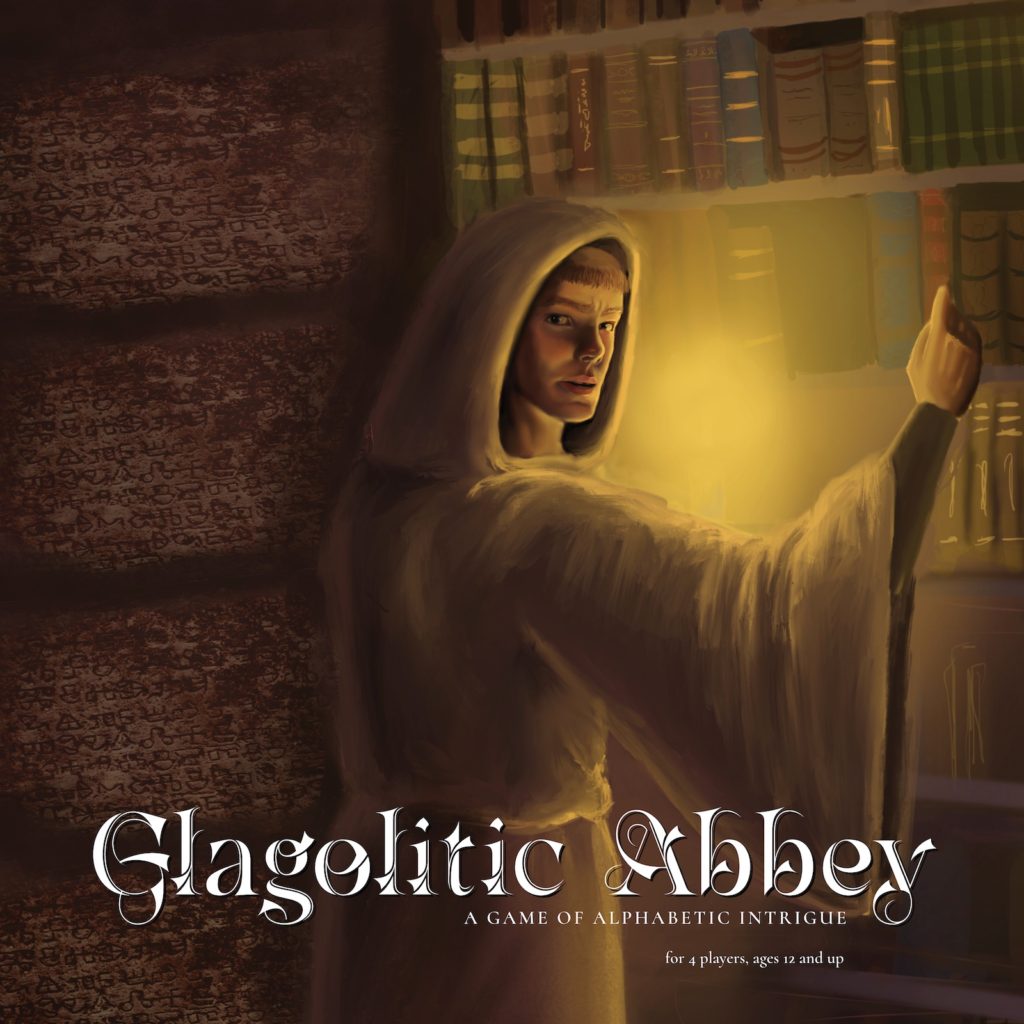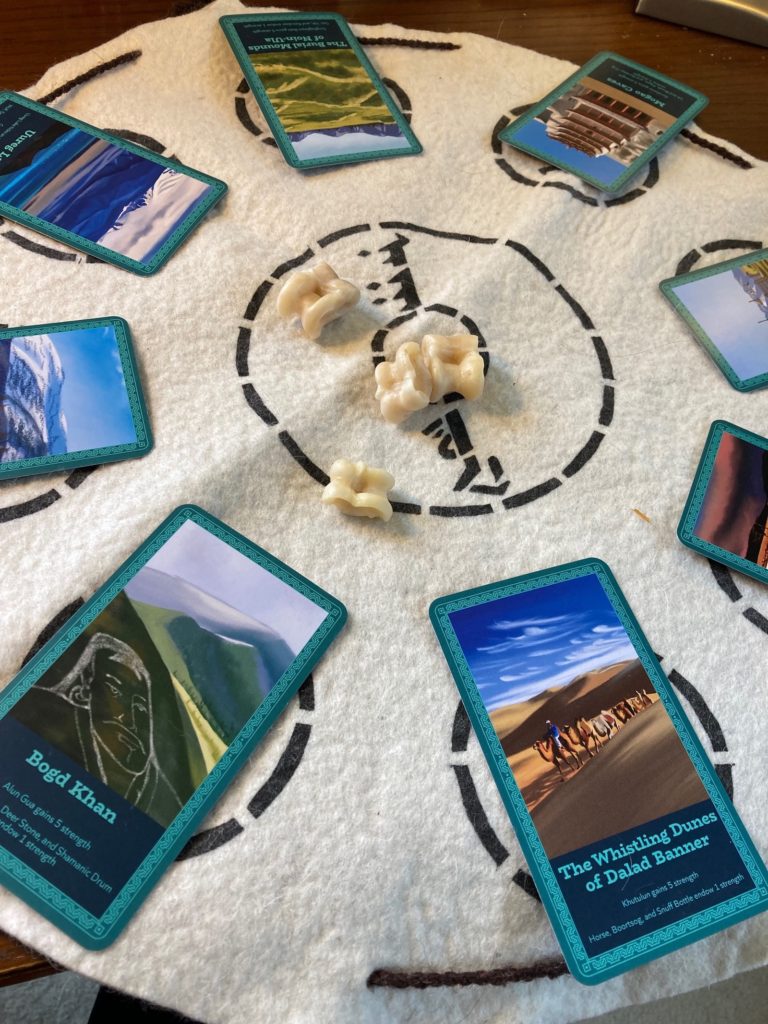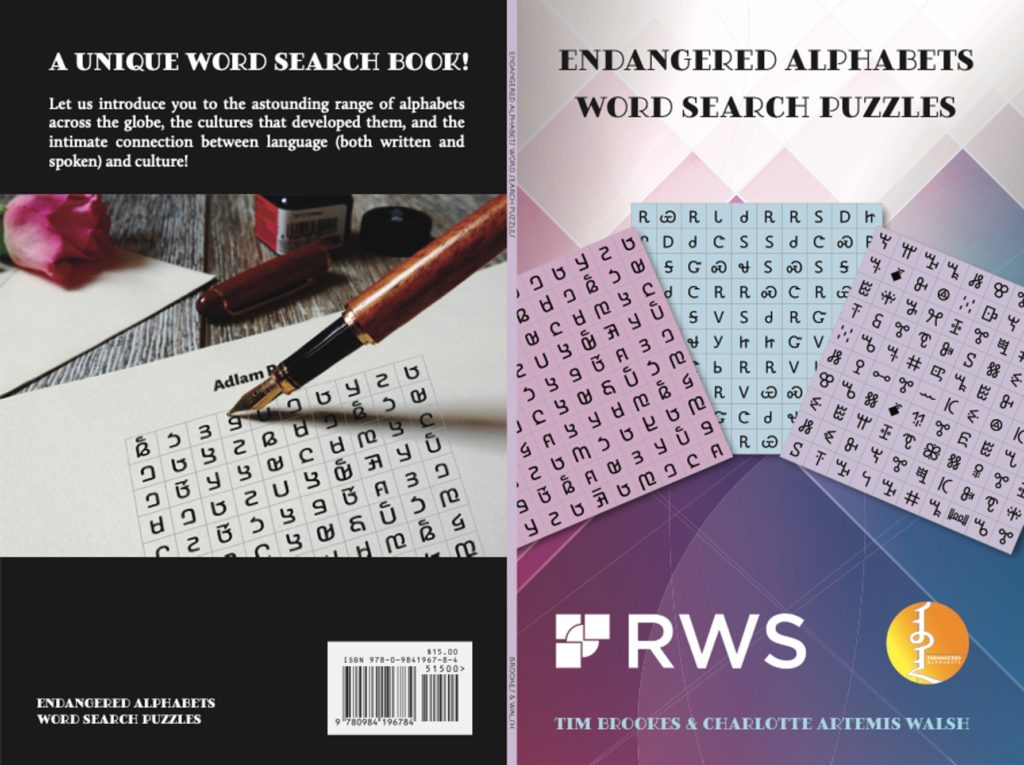Games are an excellent way to introduce new ideas, and the Endangered Alphabets Project has created games both to reintroduce endangered scripts within their own communities and to introduce minority scripts to the public at large.
—Heidi Cho
In the former category are special decks of playing cards designed to help teach traditional scripts in their communities and in schools. Scripts included: Baybayin (Philippines), Glagolitic (Eastern Europe), Cherokee, Cree, Chakma (South Asia), Mro (Bangladesh), and Abenaki (northern New England).
We have also developed two board games that introduce, support and propagate endangered scripts.
Glagolitic Abbey is a clue-based board game that introduces the ancient Slavic script in the context of a treasure-hunt in a 13th-century abbey.
Ulus: Legends of the Nomads is an entirely original tabletop game designed to introduce traditional Mongolian culture, mythology, history, language and script while incorporating authentic indigenous elements and artwork. Champions drawn from Mongolian history and mythology battle mythological monsters for the future of the Mongol lands, and the Mongol soul. The game mat is made from hand-stencilled traditional felt used to make clothing, shoes, and yurts. Instead of dice, the game uses shagai, sheep’s anklebones used across Asia in children’s games and divination for thousands of years. The game, funded by a wildly successful Kickstarter campaign, has been featured in publications as diverse as Tabletop Gaming magazine and Ogmios, the magazine of the Foundation for Endangered Languages.
The Endangered Alphabets Project has also developed two books that introduce minority scripts in game form: Endangered Alphabets Word Search Puzzles, and (in production) Endangered Alphabets Sudoku.



